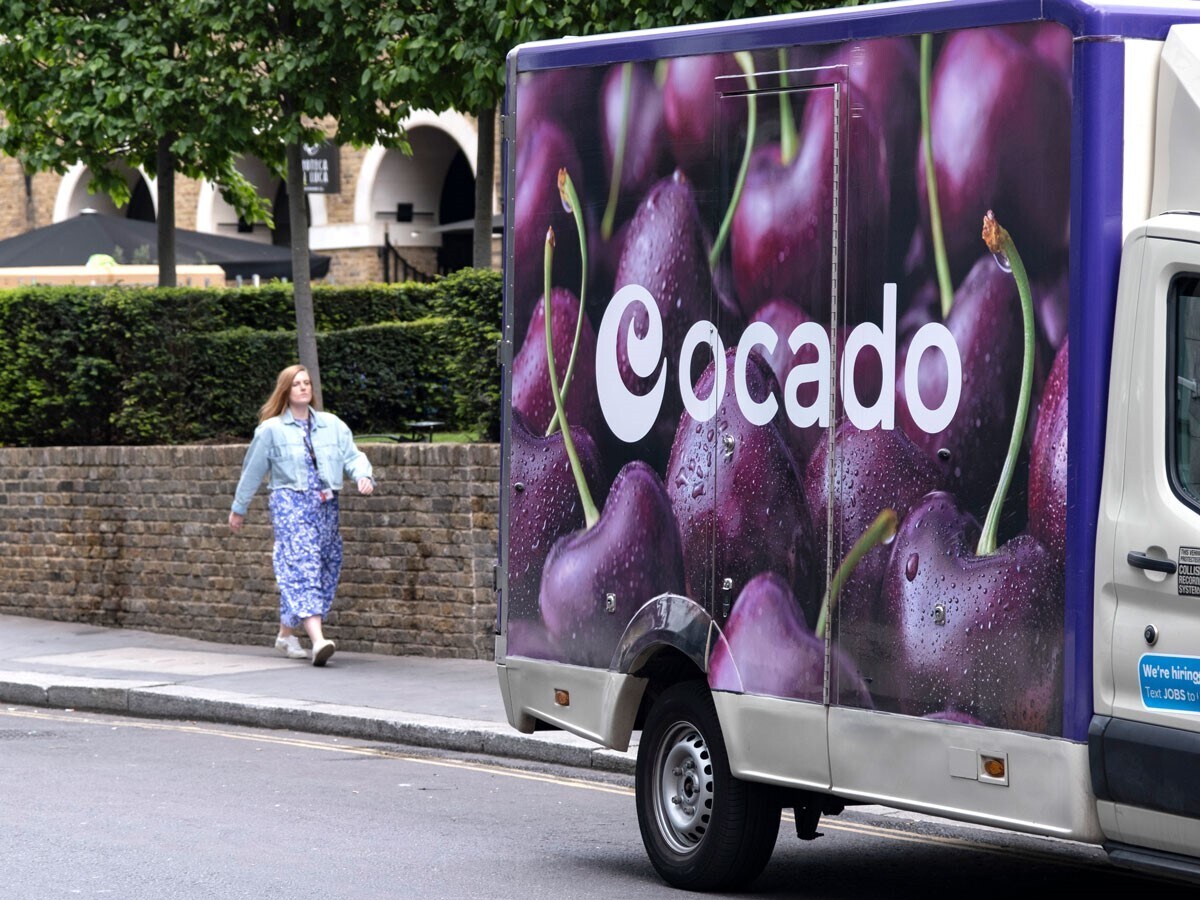Ocado’s share price bagged some gains last week following rumours it could be a potential takeover target for big tech players, including Amazon. However, the stock has all but collapsed since its pandemic-era highs. Rising interest rates could pile on more pressure, with two analysts recently trimming their price targets.
- Ocado’s share price gained almost 32% on Thursday 22 June after takeover rumours emerged.
- HSBC and JP Morgan cut Ocado price target.
- Rising interest rates could put the squeeze on basket sizes.
Ocado’s [OCDO.L] share price bagged a 32% gain on Thursday off the back of news that the online grocer might become a target for big tech players, including Amazon [AMZN].
That news must come as a relief to Ocado’s shareholders, who have seen the stock plummet since its pandemic-era heyday. The stock has been one of the worst performers on the FTSE 100 this year and recently avoided being booted off London’s leading index.
But are takeover rumours enough to feed Ocado’s share price, as rising inflation causes analysts to trim price targets?
Ocado’s share price up on Amazon rumours
Ocado has been the target of takeover speculation in the past, but its years-long share price spiral has made it a tough sell. Any deal with a tech giant like Amazon will be closely scrutinised by the UK’s Competitions and Market Authority.
Shares in the online grocer have tanked after their pandemic-era highs. Year-to-date, Ocado’s share price is down almost 13%, closing Friday 23 June at 537.6p. Over 12 months the stock is down over 38% and almost 73% over the past two years. The stock is now one of the most heavily shorted on the FTSE 100.
While the takeover rumours provided Ocado’s share price with a much-needed boost, the stock dropped 5.32% on Friday as sentiment again curdled. For a longer-term rally there will need to be more concrete details of any takeover bid, especially considering some of the headwinds that Ocado faces in the short to medium term.
Ocado’s share price at the mercy of inflation
While takeover talk boosted Ocado’s share price last week, an emerging headwind for the stock is rising interest rates and their knock-on effect on shoppers’ disposable incomes.
On Tuesday 20 June JP Morgan [JPM] trimmed its price target on Ocado from 450p to 400p, suggesting a 25.6% downside on Friday’s close, and put the stock on its ‘negative catalyst watch’.
Analysts at JP Morgan said that, as per Kantar data, Ocado was losing ground to offline discounters against a background of falling customer budgets. It noted that inflation-driven rises in prices are being offset by smaller customer baskets, which will impact Ocado Retail’s bottom line.
“With Ocado’s UK Retail operations barely profitable in 2023, we see limited scope for Retail to act as the required showcase for the company’s Solutions operation,” the JP Morgan analysts wrote in a note to investors.
The analysts said that the industry shift to the type of customer fulfilment centres that Ocado’s Solutions business builds is likely to remain slow, with supermarkets preferring in-store picking options which allow them to minimise capital expenditure.
The analysts said that a dearth of new partnership announcements would be detrimental to the Ocado share price, adding that they saw the stock’s risk-reward ratio “as unattractive versus other names in the EU internet sector”.
In a further blow, HSBC slashed its price target to 370p, suggesting a 31% downside on Friday’s close.
Where next for Ocado’s share price?
Ocado delivered an overall pre-tax loss of £501m last year. Its business building high tech fulfilment centres for global clients made a £113m loss, while its food delivery service Ocado Retail delivered a £4m loss, reversing the previous year’s £150m profit.
Things have picked up in the first quarter of 2023. Revenue for Ocado Retail was up 3.4% year-on-year to £584m in the quarter. Ocado’s international solutions business more than doubled its revenue to £148m.
However, with the Bank of England raising interest rates, and amid fears of a possible recession should rates continue to rise, Ocado could see shopper baskets dwindle. The next key date for Ocado is 18 July, when it will publish half-year results. These should provide an update on how Ocado is faring as interest rates continue to be hiked.
Disclaimer Past performance is not a reliable indicator of future results.
CMC Markets is an execution-only service provider. The material (whether or not it states any opinions) is for general information purposes only, and does not take into account your personal circumstances or objectives. Nothing in this material is (or should be considered to be) financial, investment or other advice on which reliance should be placed. No opinion given in the material constitutes a recommendation by CMC Markets or the author that any particular investment, security, transaction or investment strategy is suitable for any specific person.
The material has not been prepared in accordance with legal requirements designed to promote the independence of investment research. Although we are not specifically prevented from dealing before providing this material, we do not seek to take advantage of the material prior to its dissemination.
CMC Markets does not endorse or offer opinion on the trading strategies used by the author. Their trading strategies do not guarantee any return and CMC Markets shall not be held responsible for any loss that you may incur, either directly or indirectly, arising from any investment based on any information contained herein.
*Tax treatment depends on individual circumstances and can change or may differ in a jurisdiction other than the UK.
Continue reading for FREE
- Includes free newsletter updates, unsubscribe anytime. Privacy policy





